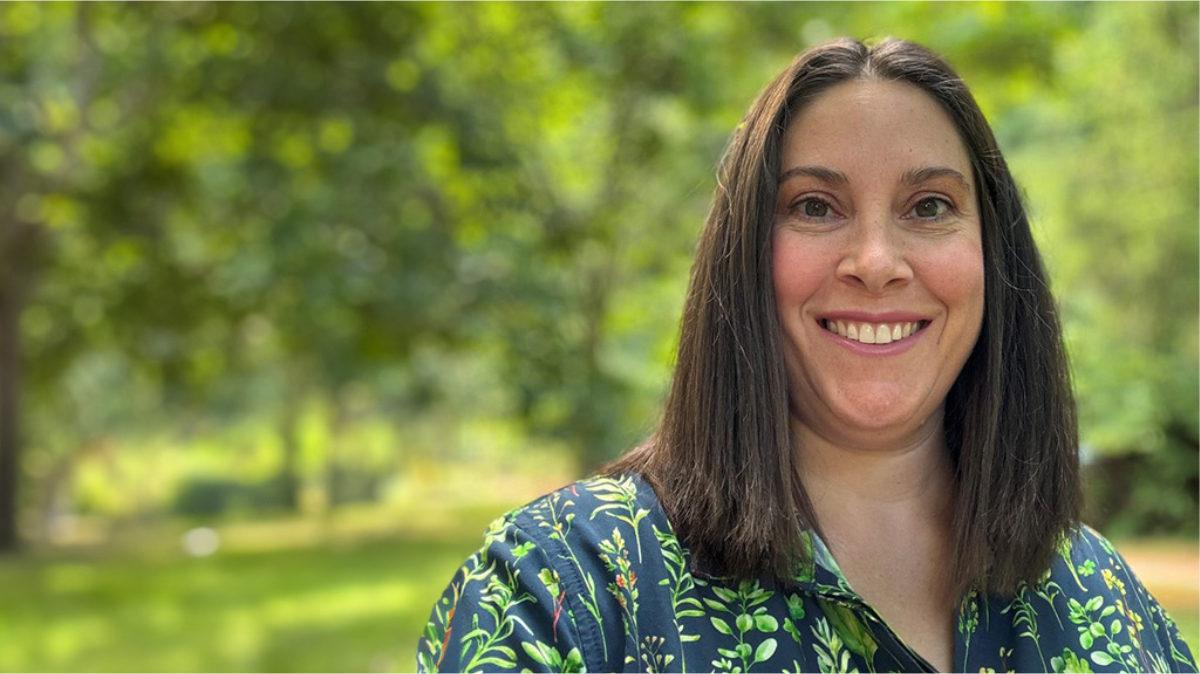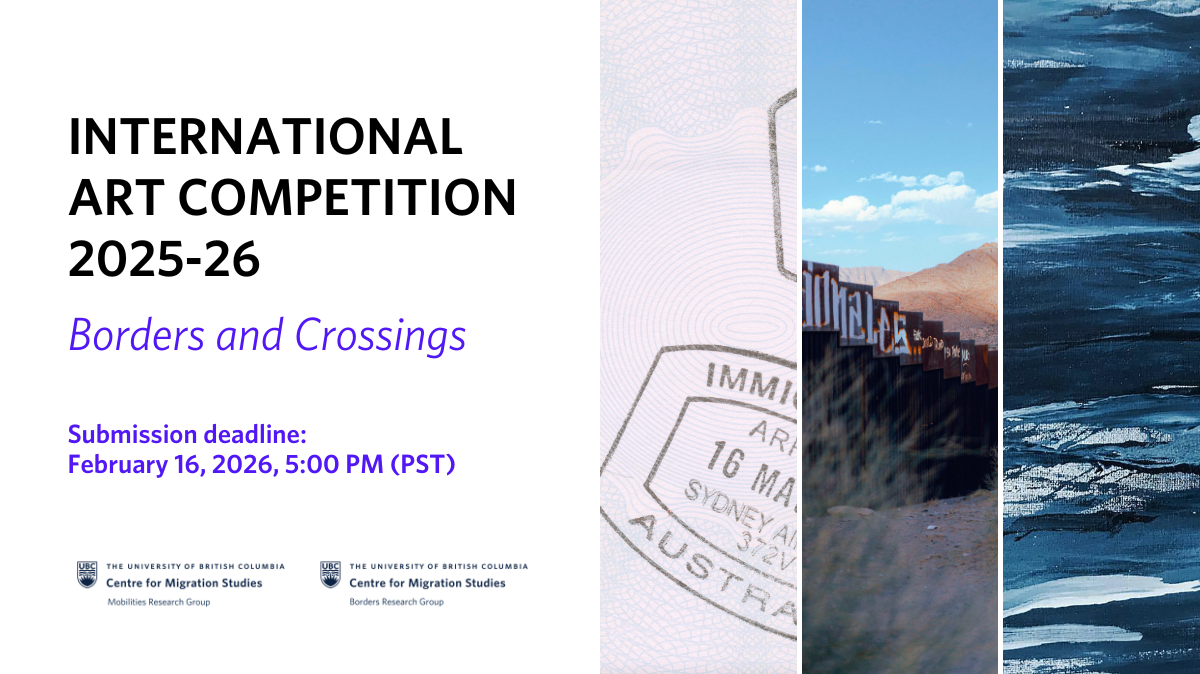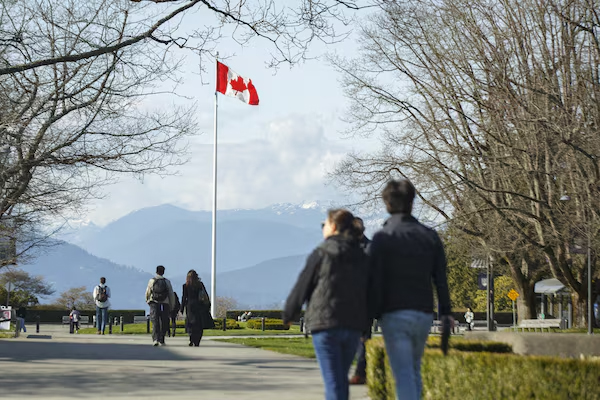

Join us in welcoming Dr. Suzanne Huot as the new CMS Interim Co-Director, starting September 1, 2025.
Prof. Suzanne Huot is an Associate Professor in the Department of Occupational Science & Occupational Therapy at UBC and a long-time contributor to the Centre for Migration Studies. She previously co-led the Migration Research Excellence Cluster and coordinated the CMS Community-University Partnerships group from 2018 to 2024. Her research explores the intersections of occupation, everyday life, and the experiences of Francophone minorities, immigrants, refugees, and asylum seekers. Prof. Huot currently co-leads the “Employment and Lifelong Learning” theme of the Bridging Divides initiative, where she fosters collaboration across campuses and with local service providers. She brings a deep commitment to both academic and community-engaged work.
We spoke to Dr. Suzanne Huot about her research and her new position as CMS Interim Co-Director.
What inspired you to take on the role of Interim Co-Director of the Centre for Migration Studies?
CMS has played an instrumental role in my professional development and networking since joining UBC. As a scholar committed to interdisciplinary and community-engaged research, CMS has provided many meaningful opportunities to connect with scholars, service providers, policy makers and community members. Having been involved with the Centre since its outset, the opportunity to serve as interim Co-Director was mainly a way for me to make a contribution to a strong team that performs a vital function in knowledge generation and mobilization about migration.
Can you tell us a bit about your background and how your research connects to the mission of CMS?
I have a Master’s in Geography and a PhD in Health and Rehabilitation Sciences. I locate my work mainly within the discipline of Occupational Science. My research focuses on two key aspects, the main one being immigration to and settlement within Canadian Francophone minority communities and the other being immigrants’ experiences of employment–preparation, job searching, and participating in work. Drawing on notions of occupational engagement, spatiality and mobilities, my work advances efforts to ensure that community spaces are inclusive.
Your research often explores the intersections of migration and occupational justice. How do these themes inform your vision for CMS?
Occupational justice centres the understanding that people have an autonomous right to engage in meaningful occupations as these contribute to positive well-being and quality of life. With respect to migration in particular, newcomers should have equitable access to opportunities for social and civic inclusion and engagement. Thus, enabling occupation justice for this population should include policies and practices that remove barriers to labour market participation, ensure inclusive public spaces, provide adequate and affordable housing, among others. CMS can support occupational justice by continuing to bring together scholars with policy makers and practitioners to enact praxis that will make a difference in the lives of immigrants to Canada.
How do you envision your role in supporting interdisciplinary research and collaboration across different fields of study?
Interdisciplinarity has always been a core characteristic of CMS and has similarly been an important principle in my own research program. I am also involved with UBC’s Green College, which fosters interdisciplinary connections, and have worked with colleagues across a broad range of fields and disciplines in my own studies. For instance, I am currently co-leading the Employment and Lifelong Learning research them of the ‘Migrant Integration in the Mid-21st Century: Bridging Divides’ project that CMS is involved with. This project brings together scholars from across social, health, and computing sciences, among others. As this project advances, I will be involved in ensuring CMS affiliates and collaborators have opportunities to engage with the findings of this socially significant research.
What are some of your goals or priorities for the Centre over the next 12 months?
I look forward to collaborating with the ongoing co-director and President’s Excellence Chair in Global Migration, Dr. Irene Bloemraad, to continue the important work undertaken by the founding co-director of the CMS, Dr. Antje Ellermann. In this supportive and interim capacity, I will be particularly involved in our strategic priority to ‘Strengthen collaborative migration research’ across departments, institutions, and with community. This will entail being involved in the preparation for the CMS-Sector Research Collaborations Day in November. I will also contribute to our strategic priority of training next-generation migration researchers by co-teaching a graduate level migration seminar with Dr. Bloemraad.
Are there any opportunities you’re particularly excited about—whether within UBC, across disciplines, or with community partners?
After returning from my own sabbatical, I am mainly excited to reconnect with colleagues from across departments who have become friends through our committed involvement with CMS over the past several years. With shifts in dominant discourses about migration in Canada, and worrisome global trends in national protectionism, our work as interdisciplinary migration scholars is as important as ever. Tackling wicked social problems requires strategic and interdisciplinary collaboration. CMS provides a wealth of opportunities to come together and work toward social transformation.


